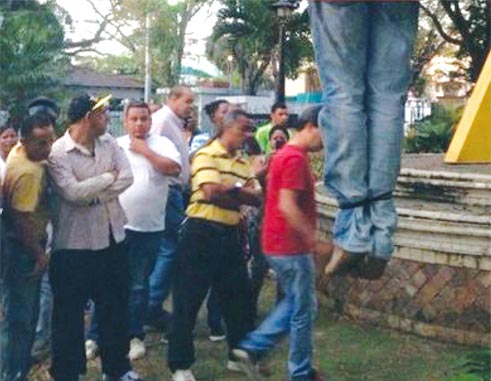SINCE November 2013 CARICOM has been proclaiming many intended positions on the subject of Dominican Republic (DR) treatment of Haitians and Haitian-Dominicans. Not a single one, I regret to say, has so far been implemented.
At its most recent meeting in The Bahamas last month, CARICOM was once more “condemn(ing)” and “reiterat(ing) condemnation.” And saying for the umpteenth time that it was “maintain(ing) its posture of ‘no business as usual’ with the (DR).” Could someone please tell us what is “usual” and “non-usual” business? Also, let’s be honest: the DR is not alone in its attitude towards Haitians. The Bahamas isn’t far behind.
Last September that country’s Immigration Minister, Fred Mitchell, unveiled a new immigration policy. Inter alia, the government would not, on pain of arrest and deportation, accept applications for people without legal status in The Bahamas. From November 1, 2014 all persons living in the country would be required to have their national passports. Those born in The Bahamas would get a residence permit enabling them to live and work in the country and allowing “access of children to school” – this “(would) not apply to the children of those (in the country) illegally.” Also from November 1, new work permit procedures would come into force. The practice of issuing Certificates of Identity to non-nationals born in the country would cease.
It has been widely assumed that the new policy is aimed at Haitians, many if not most of whom are in The Bahamas illegally and undocumented. The government has denied this: all it was doing, said Mr Mitchell in an address at the UWI Cave Hill campus early last month, was “enforcing the laws of The Bahamas”; immigration “must be through the front door…and must be documented.” He said also: “You cannot have a situation where the national security of a country, its national identity (my emphasis) is threatened merely because a society refuses to enforce its laws on immigration…What The Bahamas proposes is not unusual or unique or new.”
As for the fuss being made over children affected by the new policy, he protested he had said nothing about their exclusion from school – that was a matter for the Ministry of Education. He did, however, want to remind everyone that “tens of thousands of children were deported from the US over the past year when it became clear that they were being used to subvert the national security of the country.” What that apparent analogy might mean in The Bahamas context escapes me. And he added, strangely, that those who opposed the new policy were “people of questionable mental stability.” Comment fails.
The Robert F. Kennedy Center for Justice and Human Rights (The Center) has been unimpressed by the actions and explanations of the Bahamas government. Late last year it said it had been receiving reports that immigration raids were targeting Haitians. It stated that “thousands of children in The Bahamas now live in fear of arbitrary arrest or deportation.” The government was also “endangering the human rights of persons in immigration detention…”
The Center issued another stinging press release on February 23, charging the government with conducting mass raids on Haitian communities and detaining minors without their parents. (One hears of children being pulled out of classrooms.) It spoke of “squalid detention conditions and discriminatory treatment of Haitians and those of Haitian descent…” I might add that 10 days earlier the Inter-American Commission on Human Rights (IACHR) had requested the government to take a number of measures regarding persons in immigration detention.
Like any government, the Bahamas government has to be concerned about the country’s security. But it is significant that in his September 2014 statement Mr Mitchell appears to have mentioned by name only one country as causing difficulties: Haiti. Then, leaving no doubt, he spoke darkly about “so much criminality involved in immigration.”
On February 23 The Center asked CARICOM heads to use their Bahamas meeting “to urge the government to fully comply with the (IACHR’s) measures.” If this happened, it isn’t reflected in the meeting’s communiqué. Rather, the DR is once more lambasted.
Thunderous fulminations on the DR and thunderous silence on The Bahamas? Was this politeness to one’s hosts in Nassau, or solidarity with them? Or just plain and simple hypocrisy?
Second and Final Part
By Reginald Dumas














I’m ready to fight to defend my nation, this situation us together more than ever and that union is strength, nations that are committed to us to be disorganized as our Haitian brothers will be defeated by a sovereign and courageous people who do not grabs fear so many threats and boycott both. !!! Dominicans prepare for battle !!! , The attack is not only for the government but for a nation that has only one decision to regulate its foreign, People Demand respects our laws and we are not mogiganga of any nation outside the blackmail of the Caricom and Haiti international bodies that have never done anything for haiti